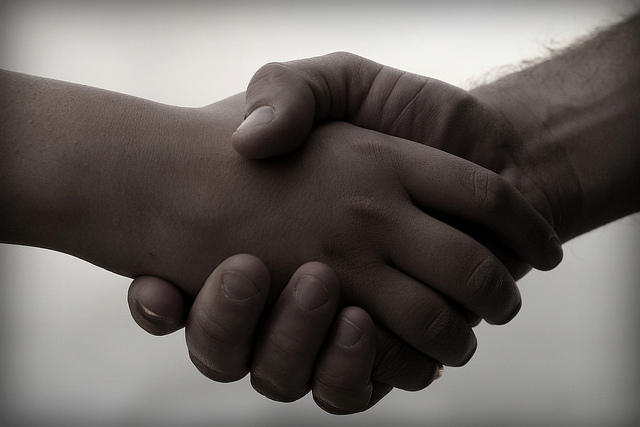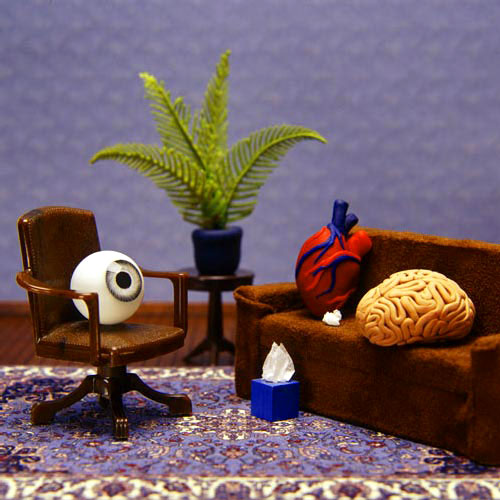Are you one of the many people who assume…
“…couple counselling tries to prevent a couple from breaking up…” ?
Then you might be surprised to learn that this commonly held view is a myth!
When people think that couple counselling is for couples who want to stay together, they’re missing the fact that couples who are breaking-up, divorcing or dissolving their civil-partnership can also benefit from using couple counselling to help them end their relationship.
Breaking-up a Couple Relationship.
When couples build their relationship, they acquire assets: physical, tangible and emotional.
Perhaps the couple share accommodation and a joint bank accounts. They may develop joint responsibilities, and may have friends of the relationship. Many couples may have children, foster care or adopt children. There may be loved pets.
When a couple reaches a place where they may be facing the end of their relationship, matters such as these – and the couples own emotional attachments and distresses – need attending to.
The couple may be angry with each other, emotions may be running high, and there may be lots of blaming. Because of the relationship’s responsibilities & acquisitions, the couple may have to continue seeing each other during the break-up.
Some couples choose to use lawyers to end the relationship for them. This is understandable, the couple may be able to afford this (usually two lawyers), and the lawyers do the communication behalf of couple.
But some couples, at the end of their relationship, are able to work together to legally dissolve their relationship together – often at a much lower cost (financing and emotionally) than using solicitors. A couple counsellor can help the couple find a place where working with each other to dissolve their relationship is possible.
Working with a couple counsellor to end a relationship can be helpful – not least because:-
- Meetings take place in neutral territory.
- The Couple Counsellor is an independent third party who does not take sides.
- Session times are fixed: the couple know when the session is going to end (which can feel quite containing).
- Any matter can be discussed.
- Should one or both partners wish to change the focus of the counselling – this can be discussed in session.
- Counselling helps bring understanding… and this can reduce the need to blame and hurt.
The Couple’s Focus in Counselling.
One of the first things we do in couple counselling is begin to find the focus for counselling.
The focus of a couple’s work will be what the couple want to change about the relationship (including behaviour). Assisting both partners express what they wish to focus on can help a couple bring a mutual understanding; that they are on the same page and that their direction is an agreed one. It may be at this stage that the couple learn what the separation is really about – and may decide to work on that whilst postponing a permanent separation.
The couple may need a way to manage their separation – if not with any friendliness then at least with a modicum of tolerance. That’s not an easy process – for obvious emotional reasons – but the couple can make use of a professional’s experience in helping their relationship to end.
Why choose a Couple Counsellor?
Not all qualified counsellors are qualified in working with couples. A majority of counselling training qualifications train the counsellor on how to work with an individual, not a couple.
Couple counselling is quite different. For example…
A counsellor trained only in individual counselling may meet with a couple and may focus upon one partner first (listening to them & offering questions & comments to them).
For example: ‘how did you feel about his affair?’ (this is called an open question – it invites the individual to say more about a matter). The therapist may then turn to the other partner to repeat the process.
The counsellor is not offering true couple-counselling.
A counsellor trained in couple counselling, will practice neutrality whilst listening to the couple discuss their issues in a way that’s most comfortable to them (perhaps equally, perhaps one partner dominates the other before the counsellor intervenes). The counsellor may offer questions & comments that addresses the relationship, (rather than the individuals).
For example: ‘Who first noticed that the relationship was breaking down?’ (this is called a circular question – it invites both partners to address their relationship, rather than their individual perspective in isolation).
For more information click here: Dean Richardson and his approach to couple counselling.
Divorce & Couple Counselling.
Couples who have engaged in marriage or a civil-partnership may decide that they wish to divorce. Solicitors will be involved for the legal matters but the couple can still meet weekly with the counsellor to discuss matters about their divorce.
It is normal for an individual wishing to leave a relationship by “saving face”, and there can be pressure to denigrate their partner (because doing so helps the individual to appear or feel better than the partner).
Couples counselling can assist the couple with the separation processes through divorce; both partners may leave the relationship in a neutral (perhaps even friendly – though not essential) way.
Are you a couple thinking about breaking-up?
Whether divorce, dissolving, breaking-up, or separating, couple counselling can assist you in the process of bringing your relationship to an end.
- Read my page on Couple Counselling.
- See my Contact Me page to send me a message to arrange an initial no-obligation appointment for an assessment for counselling.
Dean Richardson offers couples counselling in Portsmouth and Southsea (Hampshire) and online via Skype.








